This is 92: Artist and Holocaust Survivor Tibor Spitz Responds to The Oldster Magazine Questionnaire
"In essence, my birthday is every day."
From the time I was 10, I’ve been obsessed with what it means to grow older. I’m curious about what it means to others, of all ages, and so I’ve started “The Oldster Magazine Questionnaire.”
Here, artist, motivational speaker, retired scientist, and Holocaust survivor Tibor Spitz responds.
- Sari Botton
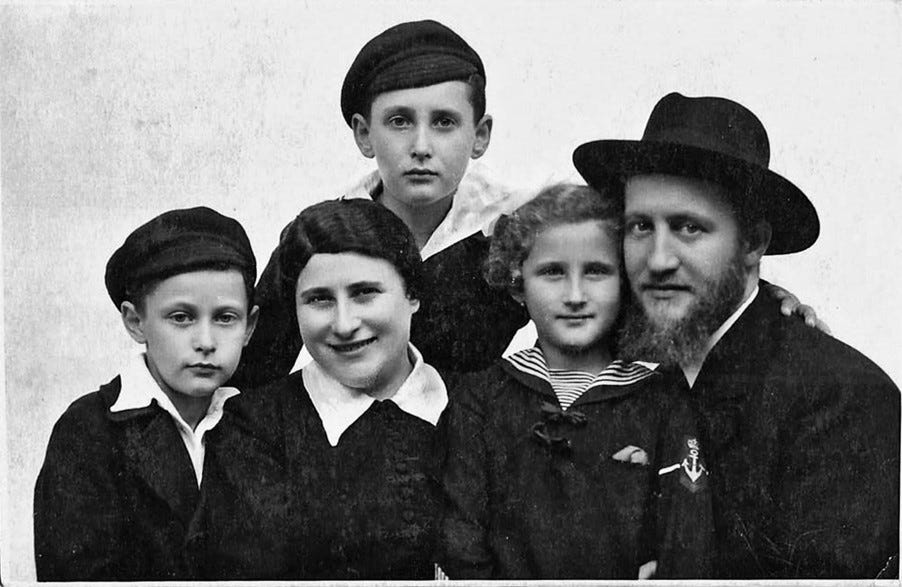
Tibor Spitz is an artist, motivational speaker, retired scientist, and Holocaust survivor. He lives, with his wife, Noemi, in Kingston, New York. He will be featured in "We Remember—Songs of Survivors," a documentary by Tim Miller and Ilene Cutler expected to air on PBS in the spring of 2022. According to Cutler, the film tells “the story of a collaboration between SageArts and Jewish Family Services of Orange County where Hudson Valley singer-songwriters met with Holocaust survivors over a period of months, got to know each other and formed meaningful relationships. Survivors shared their painful stories at this late stage of their lives. Ultimately songs were written and performed for a large live audience where the survivors were honored.”
How old are you?
92
Before I start, let me first explain few things about my childhood. I was only 10 when World War II as well as the Holocaust started. As a child born in 1929 to Jewish parents in the former Czechoslovakia, I became a direct target for annihilation by the German Nazi and the Slovak fascist governments. After fifth grade I was not allowed to continue attending public schools, and at the age of 12, under pretension of needing manual laborers, the Jewish population was supposed to be deported to Labor camps abroad. Instead, almost all deportees were promptly murdered in death camps designed for that single purpose. Our family was lucky to learn the truth, and believed the unbelievable. In order to remain alive, our family decided to resist against all odds. We were aware, standing against almost all governments of Europe, which was occupied by the German army. We were resisting laws of those countries, their police, army, militiamen and the majority of the brainwashed, bribed and scared population. The uncertain life of hiding and running lasted the following three years.
The final seven months of WWII were the hardest, as we had to live literally like hunted forest animals in snow-covered mountains during the coldest winter of the century. As a result, only a few of us were able to escape sure death in gas chambers, or being machine-gunned next to open pits or ravines. All our deported relatives vanished without a trace. Their properties are still owned by the descendants of those who benefited from the mass murder. I loved my grandparents, aunts, uncles and cousins, but that time, nobody was able to prevent the overwhelming destructive forces that secretly carried out genocide against the deceived, unsuspecting civilians. The raging, aggressive war covered their enormous crime.
I was 15 when our area was liberated by the Soviet Red Army. After being absent from schools for five years, I was almost illiterate. Sitting in high school class next to schoolmates whose education was not interrupted and who grew up normally, I felt like an old man in a kindergarten, who was unable to comprehend their trivialities and superficial interests. Eleven years later I completed my schooling by becoming a chemical engineer and a scientist with a Ph.D.

Is there another age you associate with yourself in your mind? If so, what is it? And why, do you think?
In my mind, I have never tried to escape my memories or alter my age. I am well aware that there is nothing else but THIS MOMENT IN TIME, in brief “HERE and NOW.” The only connection to my advanced age is to judge my capabilities and to estimate my chances of completing my plans that I call projects. All of the past and future ones have in common that they are an attempt to leave a message—or some kind of a warning—for both this and future generations. However, being only a human being among the many others, living in an extremely complex and difficult-to-predict system, I realize that I can only do my best trying to leave this world a little better than I found it at my birth.
Regardless of my present advance age, I do not behave as an elderly man needing help…When people notice and comment on it, sometimes I excuse myself with a joking explanation: “I have been too busy to age”.
I do not believe that the number of years I’ve lived so far had been the major factor determining my abilities to continue working hard, even in this stage of my life. My understanding is that the so-called maturity of a human being is more related to the challenges he or she was exposed to than to their chronological AGE. Personal experiences during war or an armed conflict significantly differ from those of people who lived in conditions closer to peace and safety. Human history evolving in waves shows periods of tensions and conflicts, followed by epochs of fatigue, reconciliation, ceasefires and even peace. Individual human destiny depends on timing as well as on surrounding circumstances. These fluctuations had been expressed by an ancient curse, “You should live in interesting times,” or, “You should have an interesting life.. I am sorry to disclose that, without any exaggeration, both expressions might have matched my life too closely.
Do you feel old for your age? Young for your age? Just right? Are you in step with your peers?
My personal experiences drastically differ from the fate of my peers or schoolmates who were not affected either by wars, nor by the genocide. They had reached adulthood, had families and enjoyed their relatively uneventful lives. I was unable to forget my murdered relatives, and had to accept that almost nobody was charged with the crime. To the contrary— we had to continue living in the hostile atmosphere of our new communist government that refused to let us even properly commemorate our dead relatives. The only victims and heroes of the war became the Soviet soldiers who undisputedly deserved the credit for defeating the German armies. Additionally, the surviving Jews who remained living in Slovakia were collectively accused of having contacts with the “capitalist West and Israel,” who, due to circumstances, were suddenly considered both ideological and political enemies of the regime. Living and working for two decades in such an environment, under increasingly stressful conditions, culminated the Soviet Army’s invasion of Czechoslovakia in 1968. While on two years’ technical assignment in Cuba, nine months later both my wife and I decided to take a risk and escape from a Cuban airplane that was refueling in Canada. Before moving to the USA, we continued living and working in Canada for less than a decade. Frequent moves further contributed to our loss of contacts with all our schoolmates and contemporaries in the old country. It further took away the possibility of making a comparison with lives of our contemporaries. Instead, we made new friends, and found ourselves in new places and situations.
Many survived situations inspired me to paint pictures and make sculptures that I use to represent emotions human language is inadequate to express.
As a side effect, it added to my experiences, added the evaluation and transformation of my attitude toward the value of human life, enhanced my ability to retain both physical and mental health, and to maintain balance with nature while carefully watching actions taking place within human societies and their political and economic developments. It gave me a much deeper understanding of a variety of ideologies, philosophies and even theologies. It helped me to recognize easier when they were used as legitimate educational tools, and when they’d become misused as political propaganda, to cover up selfish personal ambitions and economic gains, and/or to justify military actions. Better understanding the motives drastically reduced reasons for either shock, or surprises we were exposed to.
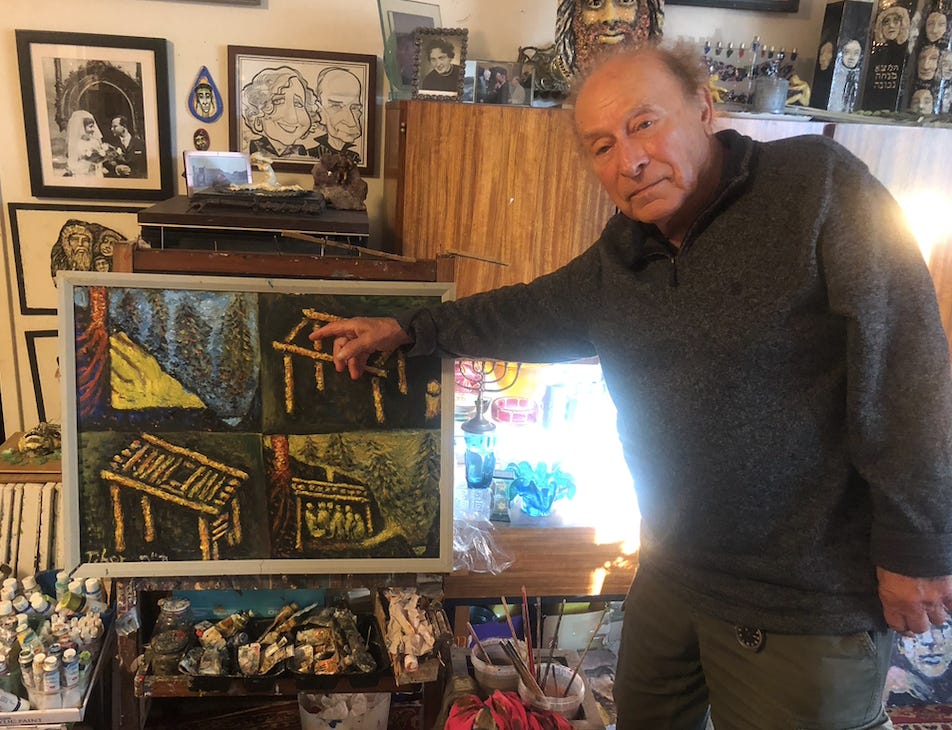
Since my childhood, I could never compare myself to anybody around me, and it’s continued unchanged ever since. Very few of my contemporaries could understand the superhuman strength required for me just to remain both alive and sane. How could anybody imagine a 14-year-old boy spending 200 days and nights (seven months) living like a forest animal in a hole under the ground in a snow-covered tall mountain, during the coldest winter of the century, while armed patrols on foot and horseback combed the forest with orders to kill him and his family? Experiences like this example gave me a very different perspective about politics, history, the human race, and in general, their role and behavior in a variety of crises and circumstances.
After, my wife Noemi and I worked hard to make a living, and we fully enjoyed our freedoms in both culture and public life. We did not compete with anybody and had nobody to compare ourselves with. Working fulltime in different technical fields, our ages played no role. Noemi was an engineer land surveyor and worked in several other jobs. I was a researcher, inventor, glass technologist, engineer, and Ph.D. scientist developing essential hardware for the emerging digital technology. Our employment depended on our professional results and performance.
A disappointing subject for an old person is to watch for nine long decades the emerging generations repeating the same mistakes as the old ones.
After retiring at the age of 68, I became a full-time artist. I still work daily and live by standards totally unrelated to any specific age group. Eventually, the totalitarian regimes in the Soviet bloc disintegrated, and we were allowed to visit the country of our origin. Naturally, we started searching for friends, neighbors, coworkers and schoolmates. We were told that a four decades-long socialist political and economic system (that took away personal, cultural, political and economic freedoms) decimated the country’s overall development. After the borders were hermetically closed (so nobody would escape), the highly developed Czechoslovakia became a poor country, and a satellite of the Soviet Union. One of the negative consequences was a drastic drop in life expectancy. In the place of my birth, I was unable to find any schoolmates, either still alive or able to communicate. None of my peers was exposed to such harsh conditions and neither passed such drastic tests as I had just to remain alive. We can only speculate how much the lessons I learned contributed to the difference. Perhaps there is some truth in the saying, “What does not kill you makes you stronger”.
What do you like about being your age?
Just a small recapitulation of what has been said already about the way of life leading me to belong to my age group of people over 90:
As a strong child not allowed to attend schools I was working in a wide variety of manual jobs. For five years, a significant part of my strategy was to hide both my age and identity, and pretend to belong to invisible ignored mases. While hiding in the forests, I was able to dig out edible plants and roots from under the snow and ice and collect frozen berries from bushes sticking out of the deep snow. A big help was my ability to remain determined, inventive, sane and alert while well aware that each passing day could have been my last one. No typical teenager would easily remain calm and strong in such a charged environment. Starting almost illiterate, a few years later I graduated high school with the best marks in all subjects. Based on Soviet government practices, I ended up in a group of talented students who were set up to study chemistry. When I started working, the country had already turned into a communist dictatorship where any common mistake made by accident was viewed and judged as an attempt to “sabotage the socialist economic order.” As a Ph.D. scientist in the research & development of manufacturing glass, I was not allowed to make such “mistakes,” as they would have marked me as an “enemy.” It took two decades to wait out a risky opportunity to escape from a guarded Cuban airplane and start a new life in the West.
Living and working in many countries, geographical regions, cultures, varieties of languages, nationalities, political and economic systems gave me a better oversight of “what to expect next.” It gave me an option to prevent getting hurt. My survival methods did not depend on my age as much as on courage, overcoming fear, decision to take risks, act and never give up regardless how hopeless the situation might be. Already, since my early childhood, I’d had to overcome obstacles many adults were unable to. Working as a scientist in the dangerous glass industry also required fearlessness, risk taking and courage.
Nothing in my life was predictable. Against all odds, few of us from a large family survived the Holocaust.
Regardless of my present advance age, I do not behave as an elderly man needing help. It looks as if I have ignored the harmful or damaging effects of accumulated years on my body and mind. When people notice and comment on it, sometimes I excuse myself with a joking explanation: “I have been too busy to age.”
Audiences at my lectures are interested how I have survived dangerous situations many other did not. Longevity allows me to answer many more questions than offered by less experienced speakers. Many survived situations inspired me to paint pictures and make sculptures that I use to represent emotions human language is inadequate to express.
What is difficult about being your age?
Aging bodies show wear and tear and require more frequent maintenance. Regular checkups by medical personnel try to discover areas that need more attention than others. This way the cases needing serious intervention can be either corrected or treated.
What is surprising about being your age, or different from what you expected, based on what you were told?
In civilized industrial countries, the general practice is to start elementary school at the age of 6, followed by high school, and in some cases higher education. Some others practice trades and crafts or work in industry or services. People work until they must or can. A majority of people remain living in the area of their birth. After accumulating some properties and retiring, most people just relax, watch TV, play games, do hobbies, socialize, travel, enjoy their children and grandchildren. This is a commonly accepted standard of a successful life.
Involuntarily, I had to follow a very different sequence. Nothing in my life was predictable. Against all odds, few of us from a large family survived the Holocaust. During the Nazi era, by law, I was not allowed to be educated. I was almost illiterate when returning to school as a teenager. Again, against all odds, I was granted an engineering diploma and during the following three years I received a Ph.D. in chemistry and ceramic engineering.
It is regrettable how far humankind could have progressed if it abandoned selfish and unfair competitions, harmful collective egos, ridiculous and childish jealousy, and envy...
Before escaping to the West, I was working as a scientist and glass technologist in communist Czechoslovakia, Eastern Europe, and the Soviet Union. I had to work in many countries and even continents. I was granted patents for my inventions, published scientific articles and presented lectures at the International Glass Congress. In Canada, we started from scratch as we escaped just with our clothes on. After moving to the USA, I worked in many places until my retirement. Instead of relaxing, a new career opened for me as an “artist with a message,” and a lecturer and motivational speaker. In the old country, after the WWII, I was not allowed to tell my Holocaust story, so I decided to do it as soon as conditions allowed me to become the full-time artist I eventually became. Shortly after, my art and my detailed biography appeared in a book by an American art historian. I had art exhibitions in USA, Canada and Europe and became accomplished and recognized speaker and lecturer as well.
As “artists never retire,” after two and a half decades I still work every day. My ability to switch without the slightest problem from a strictly technical field to becoming an artist surprised me too. Previously, I fulfilled my duties and responsibilities as an engineer—a scientist for 44 years. Then, for another quarter of a century, I became a professional painter, sculptor, ceramist, motivational speaker, published author and a lecturer.
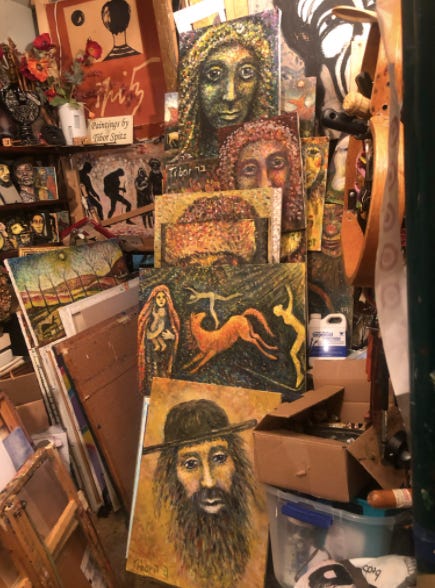
What has aging given you? Taken away from you?
Old age has given me more experience, and thus more information and time for comparing inevitable changes. I am interested in any new scientific discoveries. They satisfy my curiosity about the origin of the world and life, their transformations into present forms and states. We know more about matter, astronomy, and both emerging and spreading life across the known Universe. I enjoy every new finding about electrochemical and electromagnetic phenomena and how it all works both flawlessly and self-sufficiently, according to united intelligent natural laws.
Also fascinating are studies on psychic phenomena and progress in explaining phenomena in “esoteric fields” that contributed to my both survival and relative longevity. I embraced the possibilities of intelligent life forms scattered throughout our Universe. Fascinating are cases of evidence showing much higher technologies than our present ones. I am excited to follow reports about communications with intelligent entities outside of the rather primitive level of our own civilization. It is a pity that our limited human ability to understand the alternative forms of life is hampered by selfish interests of some powerful groups.
As a prime target of genocide, I became a hunted, undesirable element…then a student, engineer, scientist, artist, author, and a motivational speaker.
A disappointing subject for an old person is to watch for nine long decades the emerging generations repeating the same mistakes as the old ones. It reinforced the notion that, “Experiences are not transferrable.” It is regrettable how far humankind could have progressed if it abandoned selfish and unfair competitions, harmful collective egos, ridiculous and childish jealousy, and envy aimed as the most talented individuals and groups within the human race. These and similar mistakes are slowing down the general progress I expected and very much hoped to witness in my lifetime.
How has getting older affected your sense of yourself, or your identity?
Regardless of some physical limitations, I feel luckier than many of my contemporaries. I am well aware of my identity and my place in society. I know my both rights and responsibilities as human being on this little planet. My identity is based on my origin, traditions practiced by my ancestors, history going thousands of years to past to our days. More years of life added new information, and they further enforced my identity, and strengthened my convictions to be proud of my ancestors who introduced and enhanced ideas as morals, ethics, justice, equality, freedom, and love. I am proud that my ancestors outlawed slavery already 3300 years ago. Regardless of great progress, it does not make me happy how slowly the rest of the world agrees to accept those noble ancient ideas.
Added years of experience let me watch development of the human race, and judge predictions and advancements concerning our species. To an extent, it allows me to estimate the chances humankind has to take in order to either continue growing into new discoveries leading to progress, or to contribute adding negative input to its own downfall.

What are some age-related milestones you are looking forward to? Or ones you “missed,” and might try to reach later, off-schedule, according to our culture and its expectations?
My immediate plans are following: Publish my mother’s memoirs. Complete and publish my (our) biography in a book form. Replace the stolen bronze bust from my brother’s gravestone in Slovakia. Find and secure a permanent home for my art covering the Holocaust. To continue cooperating with filmmakers interested in our story. Plus sseveral other plans.
What has been your favorite age so far, and why? Would you go back to this age if you could?
Every age has its opportunities. In order to be successful, the creative activity of a person must be synchronized with political, economic, cultural, military, etc. constellation of the outside world. Such achievements are rarely related to an “optimum” age.
In my generation, I have too often known a lot of shaky grounds filled with political and military upheavals. I had to survive them all. Uncertainties at workplaces, family problems, and many crises kept interfering and diverting my attention. As a prime target of genocide, I became a hunted, undesirable element, then a student, engineer, scientist, artist, author and a motivational speaker. The world changed, the situations turned upside down, their appearance, forms and shapes kept changing. Before I became a political refugee, both my father and brother paid with their lives for being unwanted intellectuals in a totalitarian country. They did not expect that the political opposition would go so far as to murder the opposition either openly or covertly.
Even if it takes me longer to complete them, I still refuse to slow down the number of projects people expect me to work on.
“Forecasting the past” might be an interesting exercise, but nobody can turn back the clock and correct previous mistakes and misjudgments. Option to wait out “better times” or more favorable opportunity is debatable. I am unable to answer the question about “favorite age.” Any time offers opportunities that might turn useful or not. The best option is to choose the time when maximum usefulness can be achieved with minimum harm done to anybody. Since I remember, I have tried to live according to this rational principle. The proper time to act is at any time and at any age. How to proceed cannot fit all the situations. Longevity depends on proper judgement each time, or at least frequently enough. That is why, even at present, the right place and time to act seems to be HERE and NOW.
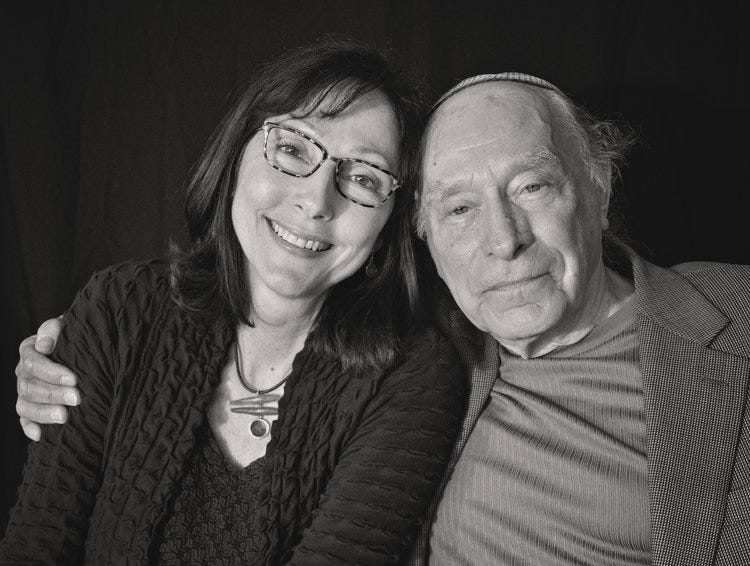
Is there someone who is older than you, who makes growing older inspiring to you? Who is your aging idol and why?
Since my childhood I have searched for somebody whom I could learn from, or follow his or her example. Among the living I found nobody. That is why my idols became two historical figures: Moses and Leonardo DaVinci.
Moses, with his revolutionary courage and immense wisdom, was in possession of millennia-old technologies and secret discoveries held by the Egyptian priests. He divided his lifespan into three parts of 40 years each. He found a suppressed and enslaved exceptionally talented tribe that desperately wanted to become free. Already 3300 years ago he condemned slavery. He organized and led the only successful uprising of slaves against the leading superpower. He dedicated the second third of his life to turning the undisciplined hordes of the former slaves into a united, disciplined nation. As all the individuals of this large group knew how to read and write, he was able to leave precise written instructions. The last 40 years he dedicated to bringing the nation to the land where they settled. Still in full mental and physical capacity at the age of 120, he appointed his successor and walked away on foot. He managed to leave written instructions and Commandments valid for all three Abrahamic religions, still in use to this day. The first parts of both the Jewish and the Christian Bibles are known as the “five books of Moses.”
As survivors of the Nazi Holocaust, we both celebrate life with every breath we take and consciously when waking up each morning.
Leonardo DaVinci was a scientist, an engineer and an artist. He had proven that both brain hemispheres can freely cooperate without any restrictions or conflict. Modern scientists and biologists denied such a possibility. By following DaVinci’s example, I became a successful scientist creating numerous technical inventions, was granted many patents, published my own technical and scientific discoveries, and simultaneously had no problems creating art and becoming a highly recognized artist. I had found no conflict between the left- and right-hand sides of my brain. I have developed my own original painting style and my detailed biography appeared in a book by an American art historian. It all happened during my scientific carrier, while developing and initiating and introducing the mass manufacturing of magnetic recording heads, which facilitated the mass production of computers and the beginning of our digital age.
What aging-related adjustments have you recently made, style-wise, beauty-wise, health-wise?
I did not have to make any adjustments related to aging. If asked to give a lecture on ZOOM or to live audiences, I gladly comply. I am unrestricted and fully involved in cooperation with filmmakers who use my art and personal participation in their documentaries.
I am not sure that help from a physical therapy outfit to treat my backache (caused by prolonged sitting at the computer) qualifies as an aging-related adjustment. In order to reduce my backache, I have never taken any painkillers, and have used either a cane or a walker only in emergencies.
What’s an aging-related adjustment you refuse to make, and why?
Even if it takes me longer to complete them, I still refuse to slow down the number of projects people expect me to work on. I still refuse no one when asked to help them clarify an issue related to the Holocaust, or enter into a debate. I still give slideshow lectures, participate at question & answer sessions, and debates.
What’s your philosophy on celebrating birthdays as an adult? How do you celebrate yours?
After surviving several years under conditions where every day could have been my last, the number of my actual birthdays (or rebirths) should be counted in hundreds. If not reminded by my wife, Facebook or our friends, my birthdays would pass unnoticed. On the other hand, as survivors of the Nazi Holocaust, we both celebrate life with every breath we take and consciously when waking up each morning.
People with life-threatening traumatic experiences value any time spent in peace and safety as a precious gift. I am immensely grateful for every moment of awareness, physical existence, freedom to be creative, and for having an opportunity to help building a better world than the one I was born into. That is why after waking up in the morning and feeling good, I am grateful to such an extent as if that day represented my real calendar day of birth. In essence, my birthday is every day.





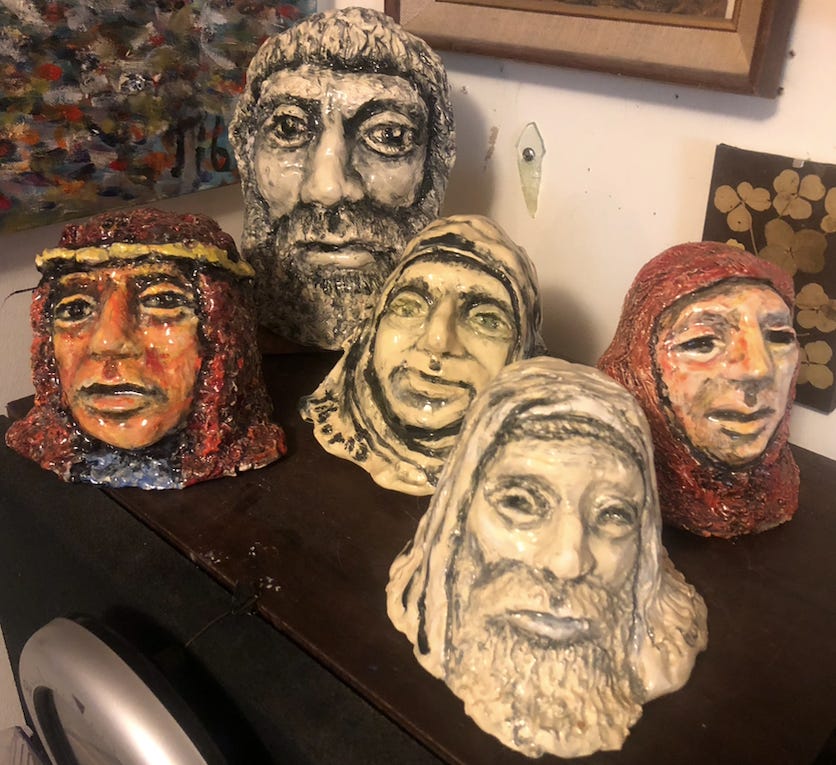
Thank you, thank you, thank you. yes, this article requires three thank you s. Sometimes I scroll to see how long an article is, before reading, as I may not have enough time. Something inside said, make the time, What an honor to repost. especially in these divided times, we must remember and keep alive the truth od the past, the beauty that is possible, and the responsibility of the artist.
>>As a prime target of genocide, I became a hunted, undesirable element, then a student, engineer, scientist, artist, author and a motivational speaker.
What tiny number of people can say this.? Tibor is a national treasure. Wait. He is an international treasure. I hope he has made progress finding the right venue to preserve and display his Holocaust-related art. What a gift to humanity he and his work are.